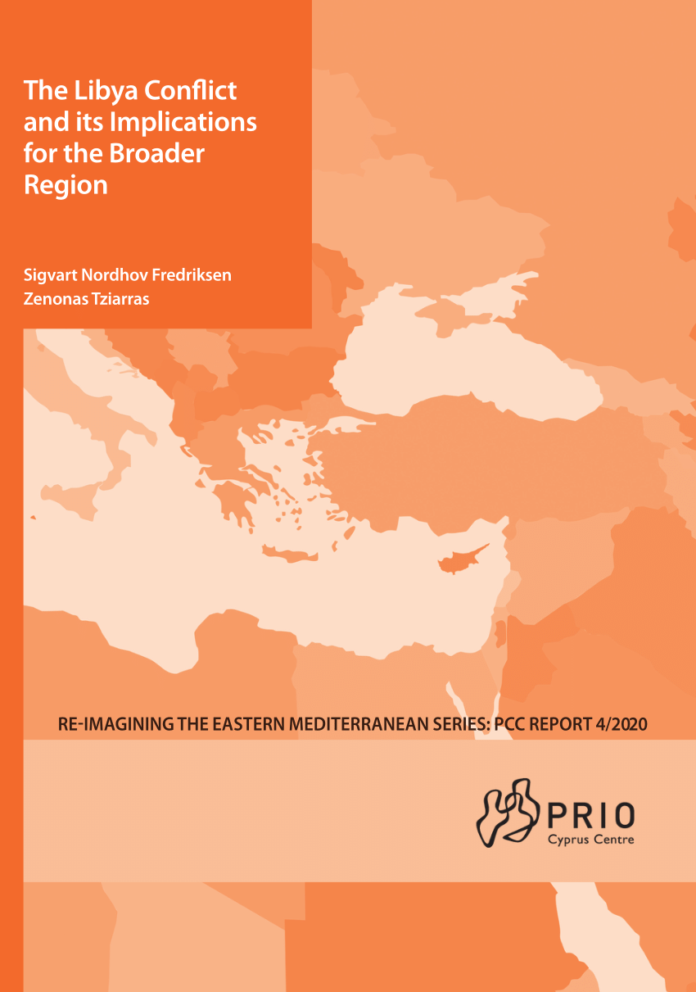Authors: Sigvart Nordhov Fredriksen and Zenonas Tziarras.
Affiliation: PRIO Cyprus Center
Organization/Publisher: PRIO
Date/Place: 2020/ Oslo, Norway.
Type of Literature: Report
Number of Pages: 28
Link:https://www.academia.edu/41682065/The_Libya_Conflict_and_its_Implications_for_the_Broader_Region
Keywords: Libya, Mediterranean, ISIS, North Africa, Middle-East
Brief:
Commissioned to look at the Mediterranean countries’ security and politico-economic prospects, the report contextualizes the new geopolitical identity with the plight of Libya. The report explores the Eastern Mediterranean as a distinct geopolitical space in the context of global and regional transitions, focusing on Libya as a case in which diverging powers’ interests meet. After tracking the historical conflict between the local rivals and the intervention of external states in the Libyan matter in the post-2011, the report tackles the implications of the Libyan dilemma on the Eastern part of the Mediterranean. While two local factions are fighting to establish control in a country divided by geography, tribal affiliation and a diverse population including de-facto city states, minorities, Islamist militias, various Jihadi networks, and transiting refugees and migrants, the independent policy of each faction with its backing allies could transfer the local conflict to a regional one. The regional disagreement between Turkey and its opponents in the Mediterranean has intertwined with the disagreement between the different powers’ interests in Libya. The report gives suggestions to end the conflict in the region: EU and concerned countries in the Libyan matter must be aware of Libya’s security threats, de-incentivize local participation in militias, and create economic opportunity while tackling Libya’s obscure economic structures. Although democracy is the ultimate goal, creating the foundation for a future state that Libyans can actually unite around must come first. External states must stop funding militias and flooding Libya with weapons and mercenaries; if Libya can be stabilized domestically, the results will be beneficial for the whole region.
By: M. Imad Atoui, CIGA Research Associate




